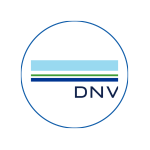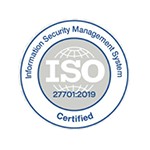Navigating the Seas: Essential Procurement Guidelines for Shipping Companies
Navigating the Procurement Landscape: Shipping Companies' Requirements and Key Regulations
Shipping Companies' Procurement Requirements and Related Regulations
In the maritime industry, effective procurement processes are crucial for ensuring operational efficiency and safety aboard vessels. Compliance with various standards and regulations, including the SGIP (Shipping Global Industry Practices), is essential. Below are key procurement requirements specific to shipping companies, along with references to related regulations:
TMSA (Tanker Management and Self-Assessment) Requirements
- Critical Equipment Management: Shipping companies must identify and manage critical equipment to ensure availability and readiness, as outlined in TMSA guidelines (TMSA Element 4). This involves maintaining real-time stocks and location data for essential items on vessels.
- Alerting for Critical Items: TMSA mandates automated alert systems to notify when stock levels of critical items fall below predefined thresholds. This ensures timely replenishment and prevents operational disruptions (TMSA Element 4).
- Auto Requisition Feature: An automated material request system should generate purchase orders based on criteria such as stock levels, consumption rates, and lead times, thereby minimizing the risk of stockouts (TMSA Element 4).
IHM (Inventory of Hazardous Materials) Compliance
- Follow-Up and Tracking: Compliance with IHM regulations requires tracking and maintaining records of hazardous materials on board vessels in accordance with the EU Ship Recycling Regulation (EU SRR) and the Hong Kong Convention. Procurement systems should facilitate effective management of these materials to meet all regulatory requirements.
Fleet KPI Tracking
- Performance Metrics: Key Performance Indicators (KPIs) are essential for monitoring and enhancing procurement processes within the shipping industry. This includes metrics related to supplier lead times, order accuracy, cost savings, and compliance rates. Monitoring these metrics allows for setting targets and measuring performance (TMSA Element 4 and Element 9).
Maritime Procurement Requirements and Related Regulations
- Real-Time Inventory Management: Maintaining accurate records of inventory levels, particularly for critical items, is vital for ensuring operational readiness on vessels (TMSA Element 4).
- Supplier Management: Maintaining an approved suppliers list that meets quality and compliance standards (ISO 9001:2015) is crucial. Regular evaluations of supplier performance are also recommended by TMSA (TMSA Element 4).
- Environmental Regulations: Adhering to environmental regulations, such as MARPOL (Marine Pollution), for procuring eco-friendly materials is mandatory (MARPOL Annex V).
- Safety Standards: Ensuring all procured items meet safety standards set by the International Maritime Organization (IMO), including SOLAS (Safety of Life at Sea).
Cost Control and Budgeting
- Budget Allocation: Assigning budgets to vessels or departments and monitoring expenditures is essential for effective financial management (ISO 55000).
- Cost Centers: Utilizing cost centers aids in the detailed tracking of expenditures for better financial control (ISO 55000).
Documentation and Reporting
- Audit Trails: Comprehensive records of all procurement activities must be maintained to facilitate audits and ensure transparency (ISO 9001:2015).
- Regular Reporting: Generating periodic reports on procurement activities and compliance with KPIs is vital for management review and continuous improvement (TMSA Element 9).
Incorporating these procurement requirements and related regulations empowers shipping companies to uphold industry standards, maintain operational efficiency, and achieve regulatory compliance. NOZZLE’s vessel procurement software capabilities are designed specifically to meet these needs, providing a comprehensive solution for maritime procurement that supports vessels in navigating today's complex regulatory landscape.
Best Assistance For Ship Management
+90 850 520 0259
Certificates & Class Type Approvals
Privacy Verified & Quality Validated in NOZZLE

Class Type Approval
by DNV

Class Type Approval
by CLASS NK

Information Security
Management

